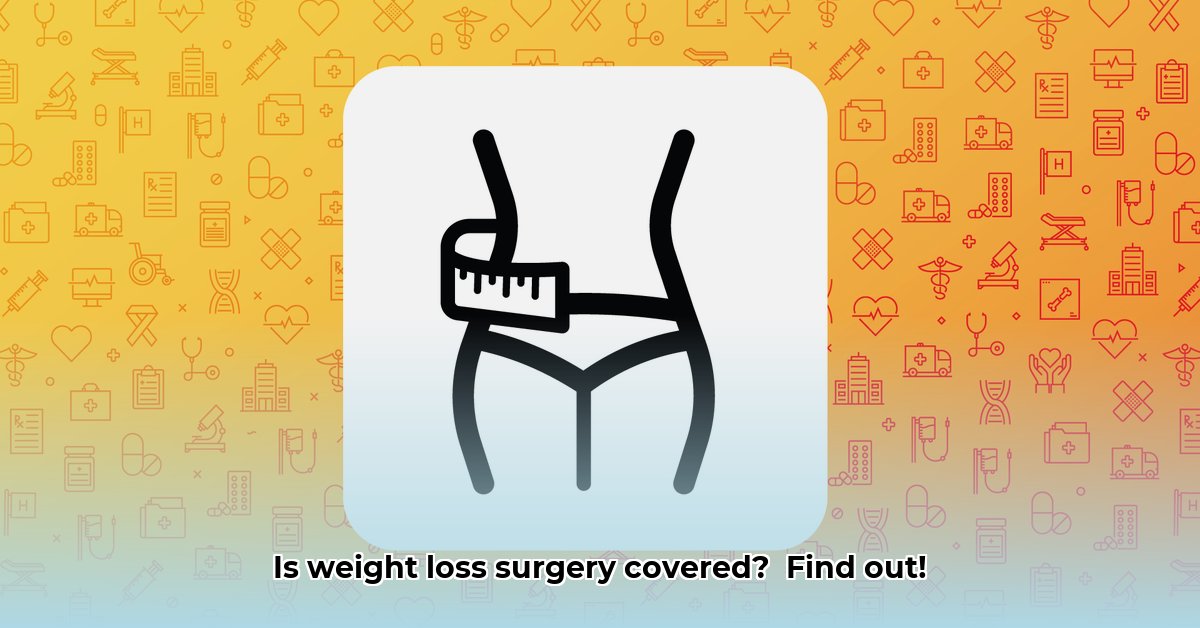
Understanding UMR's Weight Loss Surgery Coverage
Considering weight loss surgery? Understanding your UnitedHealthcare (UMR) coverage is crucial. While UMR may cover bariatric surgery, approval depends on several factors. This article clarifies the process and outlines actionable steps to maximize your chances of coverage.
Factors Influencing UMR Coverage Decisions
UMR's coverage decisions hinge on several key factors:
Medical Necessity
UMR assesses whether the surgery is medically necessary. Key considerations include:
- Body Mass Index (BMI): A high BMI (generally 40 or above, or 35 or above with related health issues) significantly increases the likelihood of approval. (BMI is a measure of body fat based on height and weight.)
- Comorbidities: The presence of obesity-related health problems, such as type 2 diabetes, sleep apnea, or uncontrolled high blood pressure, strengthens the case for medical necessity.
- Prior Weight Loss Attempts: UMR typically requires documented efforts to lose weight through diet and exercise before considering surgery.
Pre-Authorization Requirements
Pre-authorization is mandatory. This involves:
- Completing forms: Accurately filling out UMR's pre-authorization forms.
- Providing medical documentation: Submitting comprehensive medical records, including BMI, details of previous weight loss attempts, and documentation of comorbidities, as supported by your physician.
- Contacting UMR: Reaching out to UMR's benefits department for guidance and clarification on the process.
Specific Plan Details
Coverage varies significantly depending on your specific UMR health insurance plan. Carefully review your plan documents for detailed information regarding bariatric surgery coverage. Contacting UMR directly to clarify any ambiguities is recommended.
Using In-Network Providers
Choosing in-network providers (doctors and facilities) is crucial for maximizing coverage and minimizing out-of-pocket costs.
Your Step-by-Step Action Plan
Follow these steps to determine coverage and navigate the process efficiently:
- Review Your Plan Documents: Thoroughly review your UMR plan's details regarding bariatric surgery coverage. Note any specific requirements or limitations.
- Consult Your Doctor: Discuss weight-loss surgery options with your physician. They'll assess your eligibility and provide the necessary medical documentation.
- Gather Required Documentation: Compile all relevant medical records, including BMI, history of weight loss attempts, and documentation of any related health conditions.
- Complete Pre-Authorization: Complete UMR's pre-authorization forms accurately and submit them with all required medical documentation. Use UMR's preferred submission method.
- Follow Up: Track your pre-authorization request's status. If necessary, contact UMR to inquire about its progress. Don't hesitate to call; persistence helps.
- Understand Costs: Once a decision is made, obtain a detailed cost breakdown to understand your financial responsibility.
Alternative Financing Options
If UMR's coverage is insufficient or denied, consider these alternatives:
- Medical Loans: Explore medical loans specifically designed for healthcare expenses. Shop around and compare interest rates and terms.
- Payment Plans: Discuss payment plans with your surgeon's office or the hospital. They may offer flexible payment options.
Conclusion
Securing UMR coverage for weight loss surgery involves careful preparation, proactive communication, and a thorough understanding of your plan's specifics. By following the steps outlined above and exploring alternative financing options if needed, you can navigate this process effectively and increase your chances of successful coverage. Remember to always consult your policy documents and contact UMR directly with any questions.